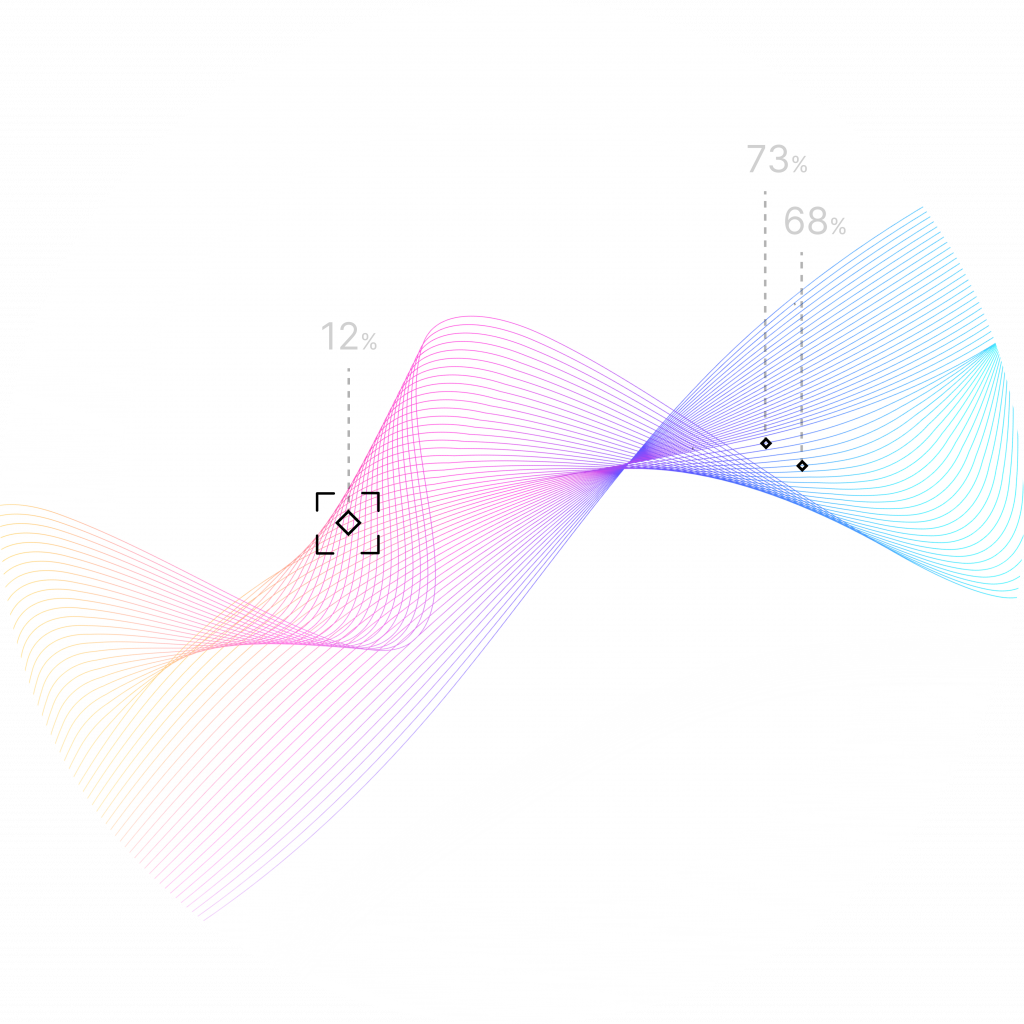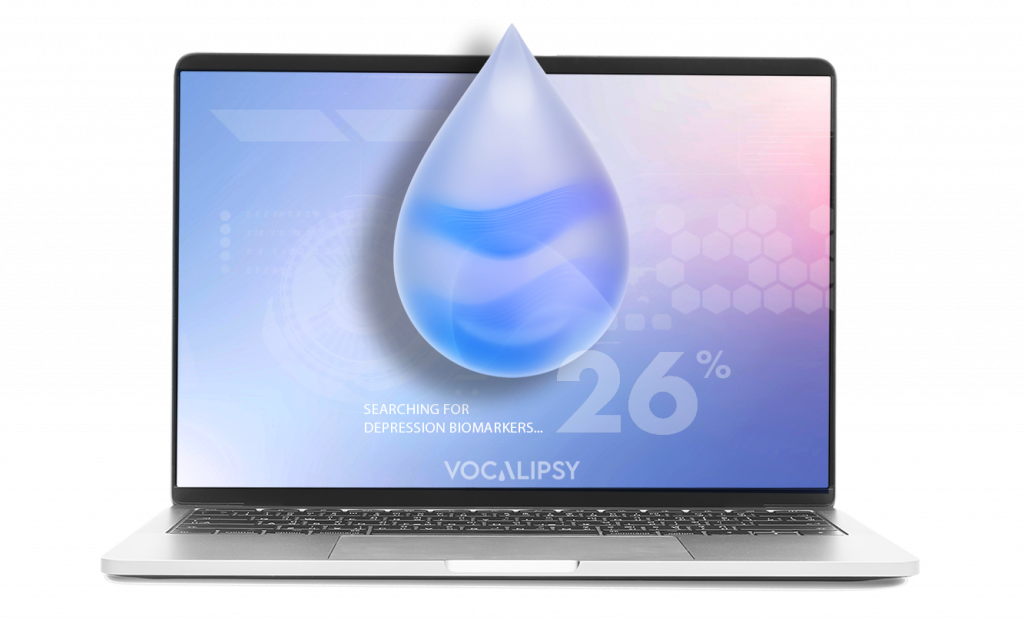Capturing the Sound of Depression
Finally, an AI-powered diagnostic Assistant
for Primary Care Doctors. Start your 7-day free trial today.

Primary Care Doctors
Welcome to the New Era
of Digital Medicine
Recent research and technological advancements now make it possible to detect mental health biomarkers in your patients’ voices.

Our voice reflects both body and mind, offering valuable insight into our emotional state. Recent research has identified vocal patterns linked to depression, opening new possibilities for assessing mental health.
Advances in artificial intelligence and everyday technology now make it possible to detect subtle vocal signals that are too faint for the human ear, using a standard computer.
Vocalipsy uses these advances to provide general practitioners a practical diagnostic tool that helps them identify concerns earlier and guide patients to the right care, faster.
A Major Disease Still Underdiagnosed
In the United States, about 1 in 6 adults will experience a major depressive episode at some point in their lives. Each year, more than 21 million American adults are treated for depression, and tens of millions more experience symptoms without ever receiving a formal diagnosis (Sources: National Institute of Mental Health, CDC).
Depression often goes unnoticed, hidden by stigma and fear of judgment. It is rarely mentioned spontaneously during medical visits, and its symptoms, subtle and varied, can easily be mistaken for simple fatigue or minor issues.
Depression is a serious but treatable condition, especially when caught early. Powered by AI, Vocalipsy analyzes raw voice data without subjective bias, making it easier to identify signs of depression in your daily practice.

Discover

Unleash the Power of AI

Vocal biomarkers and New Identification Methods
“It’s Not What You Say,
But How You Say It.”
Vocalipsy technology utilizes advanced acoustic analysis to detect micro-features in speech that are imperceptible to the human ear.
In recent years, research showed that tension in the vocal cords and complex frequency patterns can reflect subtle emotional states.
Our software does not interpret the meaning of words. It focuses solely on how it is said, ensuring complete medical confidentiality.
Vocalipsy generates and processes only acoustic data, preserving full medical confidentiality and ensuring data security.
Subscription
Exclusive and Unique Offer
Primary care physicians, it’s time for you too to step into
this new era of digital medicine!

✦ No Commitment
✦ Referral program
FAQ
Frequently Asked Questions
Find clear answers to your questions.
For more information, feel free to contact us.
Vocalipsy uses AI to detect vocal biomarkers associated with depression by analyzing subtle, non-verbal features in speech that are scientifically linked to emotional states. Built on cutting-edge research, our system provides indicators to support early detection.
In optimal conditions, Vocalipsy can achieve detection reliability rates of up to 85%. However, it is designed to assist, not replace, a physician’s clinical judgment.
Patient confidentiality is at the core of Vocalipsy’s design. Conversations never leave your personal computer or examination room. Voice data remains on your device and is locally converted into visual spectrograms. Only these acoustic images are analyzed, ensuring complete patient confidentiality and data security.
There is currently no federal law in the United States requiring physicians to disclose the use of AI tools during consultations. However, several states are strengthening their health data privacy laws. Some, such as California, Washington, and Connecticut, now require explicit consent for the use of health-related data.
In light of this, transparency is strongly recommended. Informing your patient supports ethical standards such as informed consent, helps maintain trust in the physician–patient relationship, and may help prevent legal risk.
As regulations continue to evolve, we encourage you to stay informed about AI-related laws in your state and to clearly disclose the use of Vocalipsy during clinical care.
Vocalipsy was initially trained on English-language voice data. However, the software does not analyze the meaning or content of speech. Instead, it focuses on acoustic features that are considered universal–such as prosody (intonation, rhythm) and spectral qualities (pitch, vocal timbre). Because these vocal characteristics are common across most Western languages, Vocalipsy shows strong potential for use beyond English. Ongoing studies are currently assessing the tool’s reliability and robustness when applied to other languages. Don’t hesitate to try!
Vocalipsy is compatible with most modern computers, tablets, and smartphones. No special hardware is required–just a device with a reliable microphone.
Vocalipsy can be used during in-person consultations, in any clinical setting. For accurate results, the patient should be alone so the system can focus on a single voice. You don’t need to start the analysis at the beginning. Vocalipsy requires only a 45-second voice sample and can be activated at any point during the consultation, without disrupting the flow.
Vocalipsy offers a monthly or annual period of subscription that you can cancel at any time. Note: If you choose the annual plan, your access will remain active until the end of the paid period, and it will not renew automatically.

